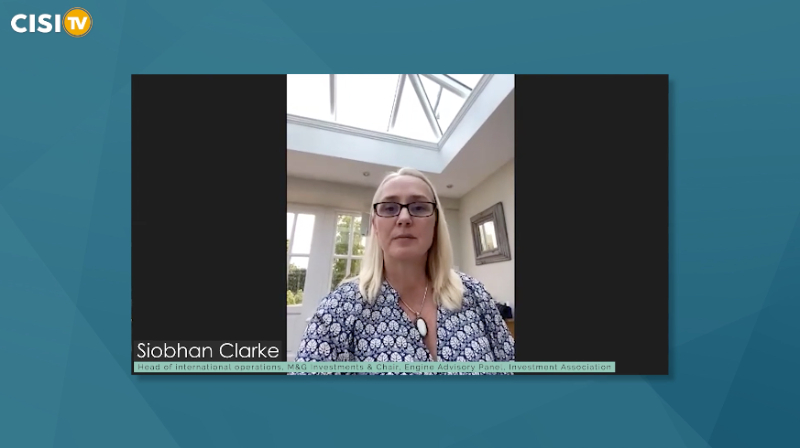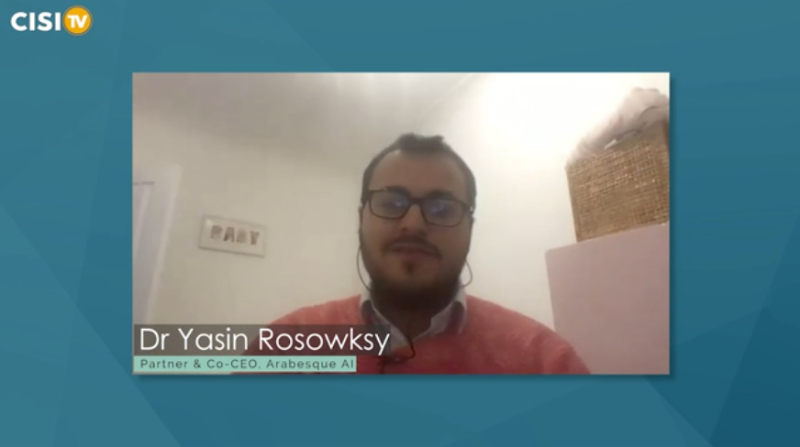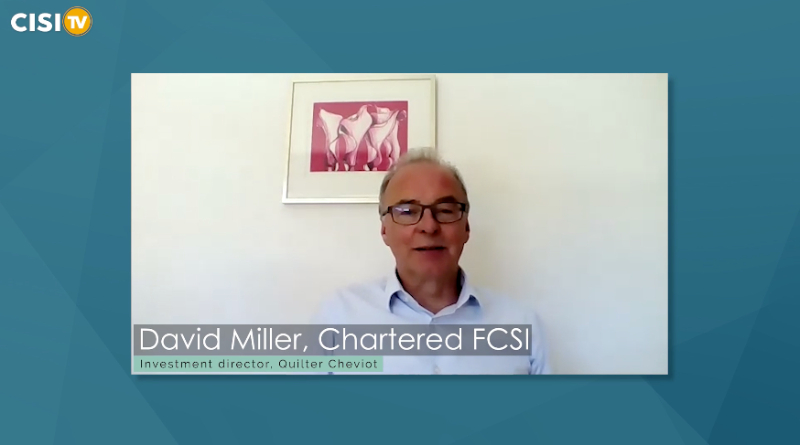Using AI for emotion-free decisions and large data analysis could help a fund manager's investment strategy
by Bethan Rees
A May 2021 CISI webinar, titled Artificial intelligence: what is it, and how is it being used in financial services operations? provides some fascinating insights into AI’s origins and where it’s likely to lead in the future.
The webinar is chaired by CISI Fintech Forum chair Michael Imeson, Chartered MCSI, senior content editor at FT Live and contributing editor at The Banker. He is joined by three experts to discuss how AI is being used in the sector.
Michael kicks off the discussion with a reference to the Encyclopedia Britannica definition of AI, written by the director of the Turing Archive for the History of Computing: "A computer system endowed with the intellectual processes characteristic of humans, such as the ability to reason, discover meaning, generalise or learn from past experience." Michael acknowledges that AI does of course still lack many human characteristics, such as consciousness and emotion, "but in many areas of business these deficiencies don’t matter and in fact can be regarded as attributes".
AI’s precursor
Siobhan Clarke, head of international operations at M&G Investments and chair of the Investment Association's Engine Advisory Panel, explains the importance of AI’s precursor, robotic process automation (RPA), which has been around for "20-odd years".
Clarke explains that RPA essentially takes a repeatable task, such as copying, pasting, and saving a Word document, and programs a robot to do it.
She says that understanding RPA is an important step in an AI journey, as it makes a business take a close look at its processes and the accuracy and cleanliness of its data. This enables staff to begin to understand processes and to identify what can be automated. It changes their mindset and ways of working, explains Clarke.
General AI vs narrow AI
There is a distinction between AI as we know it today and the future of AI, says Dr Yasin Rosowsky, partner and co-CEO of Arabesque AI, which builds custom investment strategies at scale powered by AI. The AI that we use now is known as 'narrow AI', which utilises machine learning techniques for specific use cases, for example, predicting returns in financial markets through finding patterns and relationships in underlying data, efficiency of which has been accelerated in recent years, explains Rosowsky.
General AI, he says, is what most people think of when they think of AI, such as the cyborg in The Terminator films, but this type of technology won't exist for another 20 years or so. General AI requires a system to be able to be "conscious or aware of the environment they're in", and navigate through this environment to meet goals and make decisions, he explains.
AI and its role in investment decisions
David Miller, Chartered FCSI, investment director at investment management firm Quilter Cheviot, says that the past year or so, since the pandemic began, has been a "real test case" on certain areas of the market, and the AI approach that appears to be working the best at the moment is trend following with intelligence.
Funds that use AI were linking into a range of shorter-term metrics that started to see tensions build in February 2020, and then were quite prepared to reverse their positions in April 2020. David says that for a working fund manager, it's very difficult to do that, and the AI appeared to work by "the removal of emotion and also the ability to analyse an awful lot of data quickly". That's where "AI did seem to come out ahead of humans".
Rosowsky explains how his firm uses AI in its investment strategies. Clients can customise their investment strategy from scratch, based on their investment risk and sustainability objectives. This is powered under the hood by an AI engine that optimises the portfolio. These are not 'robo strategies', he says, they are fully active strategies. The engine predicts around 30,000 equities on a daily basis.
To find out more about AI how it's working in financial services, and how it might work in the future, watch the full CISI TV video.